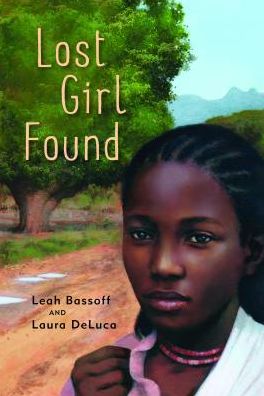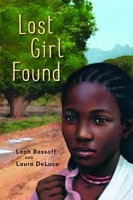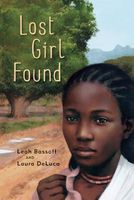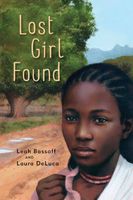- Welcome to FictionDB, Guest
- | My Account
- | Help

Lost Girl Found — Leah Bassoff; Laura DeLuca

For Poni, life in her small village in southern Sudan is simple and complicated at the same time. Stay in school. Beat up any boy who tries to show attention. Watch out for the dangers in the river.
But then the war comes. And when soldiers arrive in her village, and bombs begin to rain from the sky, there is only one thing for Poni to do. Run. Run for her life.
Poni does run from the bombs, and though many of the villagers do not escape, she does. An unknown man carries her across the river in the dark, and then she is walking ― a long, dusty trek across the east African countryside with thousands of refugees. Along the way, many die from starvation, land mines, wild animals and despair, but Poni does not, driven by the sheer will to survive and the hope that she can somehow make it to the Kakuma refugee camp in Kenya, and one day be reunited with her family.
She does make it to Kakuma, where she is almost overwhelmed by misery that surrounds her. Only Lokure, a boy from her village, can give her the emotional and intellectual sustenance that she craves as much as food. But when her foster mother makes plans to exchange her in marriage for a meager dowry, Poni realizes that she must leave the camp at any cost. Her destination is a compound in Nairobi run by the strict Sister Hannah. There, if she is lucky, she will be able to continue her education and even, one day, convince authorities that she is worthy to go to the land of opportunity called America.
Even more than the dramatic events of the story, it is Poni's frank and single-minded personality that carries this novel. She is willing to do whatever it takes to live, but she certainly doesn't escape survivor's guilt. In a heartbreaking final twist, she finds her mother just as she is about to leave for the US, and must make the hardest decision of all.
- 2014 Parents Choice Award (Spring) (2008-Up) -- Fiction (Gold Medal Winner)
- 2015 Colorado Book Award -- Young Adult (Winner)
- 2015 Colorado Book Award -- Young Adult (Finalist)
- 2015 Capitol Choices: Noteworthy Books for Children and Teens -- Ten to Fourteen (Recommended)
- 2014 Kirkus Reviews -- Starred Review (*)
- 2014 School Library Journal -- Starred Review (*)


